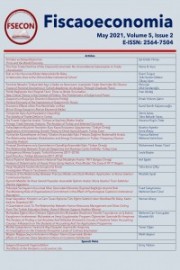Politik Bağlamda Yeni Eleştirel Teori: Özne ve İktidar Sorunsalları
New Critical Theory in the Context of Politics: The Problematics of Subject and Power
Author(s): İnan AkdağSubject(s): Economy, Social Philosophy, Political economy
Published by: Ahmet Arif Eren
Keywords: Critical Theory; New Critical Theory; Post Marxism; Subject; Power;
Summary/Abstract: The emergence of critical theory goes beyond to the beginning of written history. Humanity had continuously engaged critically with its environment. In this context, systematical approach has created traditions. The aim of this study is to analyze the critical theory which has a systematic point of view and the new critical theory from which the critical theory has emerged. New critical theory was born in the 1960s, was a system of thought and there was a break in the continuity relationship with classical critical theory. This view based on postmodern philosophy and bears the traces of classical critical theory, but it went beyond it. This study which examined the new critical theory in relation to subject and power, identified a break in continuity between classical critical theory and the new one. If classical theory emphasizes classes in the subject of subject and highlight working class as the privileged subject, new critical theory substitutes subject positions for identities as plural subjects. Moreover, if classical critical theory defends the assumption of power, new critical theory takes a distanced position on the phenomenon of power. Politically, if classical critical theory targets socialism as a political project, new critical theory seeks reform in liberal democracy. As class roots, if classical critical theory is the thought form of the working class, new critical theory becomes the thought form of petty bourgeoisie. Therefore, the political project of the working class is rejected by the new critical theory. The area of this study is the new critical theory born after 1968. The hypothesis of this study is that there is a break in the continuity relationship between new critical theory and classical critical theory in political terms.
Journal: Fiscaoeconomia
- Issue Year: 5/2021
- Issue No: 2
- Page Range: 454-469
- Page Count: 16
- Language: Turkish

